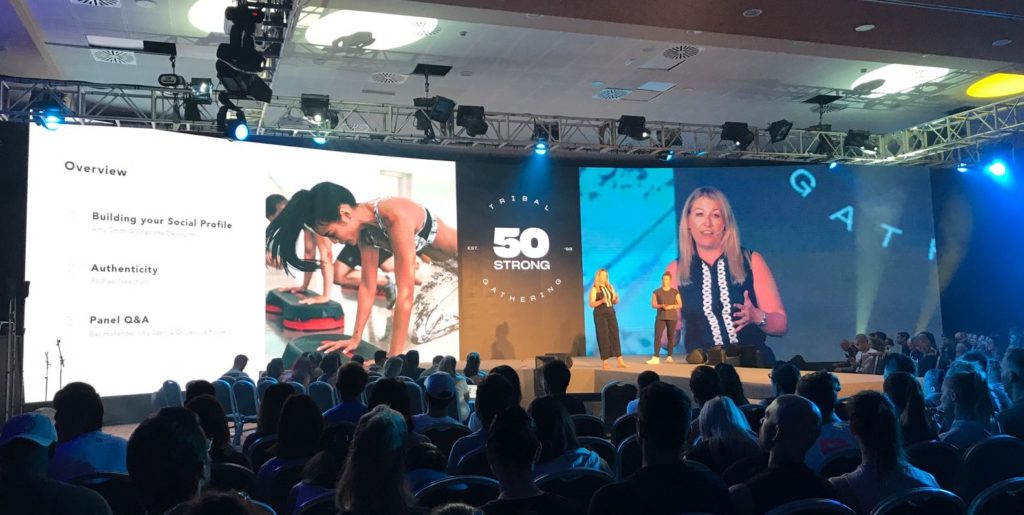Let’s talk about Imposter Syndrome. Writing this post whilst flying back from a business trip in Mumbai, imposter syndrome has never felt more real. Surrounded by business people, confidently tapping away at their laptops, I’m in comfy active-wear, no-make up and very occasionally getting that fleeting feeling like I have no license to be here, or I’m here by luck, accident or some fluke. Let’s be clear, it’s me that’s making me feel that way, nobody else, and it’s very irrational. It simply isn’t the case that I don’t deserve to be here. It’s an illusion in my mind.
So, what exactly is imposter syndrome? Imposter syndrome is incredibly common, affecting millions of men and women in their daily lives. It does not discriminate by age, gender, race or career stage. That feeling of self-doubt, that nagging feeling of somehow having cheated the system or ‘got lucky’ to have the success you have, forgetting to credit the years of study, risks, sacrifices and hard-work which have been the real contributors to success. That’s imposter syndrome.

For me, imposter syndrome was something I first recognised as I started to build my own self-awareness and emotional intelligence. I started to reflect on how my own thoughts, or the story I tell myself, translated to my behaviour as a leader, and that’s when the penny started to drop.
Personally, situations where I am pushed beyond my limits have always energised me and caused me to grow. It is at these times that imposter syndrome manifests as a surreal feeling of somehow being a fraud to be doing what I’m doing. I recall being in Tokyo a few years back, trying to find an agency partner to work with. I met one of the biggest networks in the world. I walked into a board room as ‘the client’ and everybody stood up and bowed and looked at me. They waited for me to speak and hung on my every word. In my head I was only just out of school, not qualified to be in this situation. Just this week, I’ve been the client for the company I am consulting for, meeting agencies in Mumbai who have researched me and tailored their presentations to me. Clearly at times like these, I omit to credit my 10+ years International business experience and instead still very occasionally surrender to the nagging and illogical self-doubt which makes me feel vulnerable and inadequate.
I’ve spoken to tens of others about this. They tell me that anything from speaking up in a meeting to taking possession of a new office can bring on the irrational, often fleeting feeling I describe above. It’s not rational, it’s not logical, it’s not fair and it’s not right… and even in the fleeting moments that it affects us, the impact can be very real.
So how do we address this? Here are 5 ideas which work for me:
- Talk about it. Opening up and sharing the reality of these feelings with others is both inspiring and uplifting. Addressing the elephant in the room is such a release, and in my work as an executive coach I am privileged to have the broad perspective of hearing from others about this. I reckon those people sitting on the plane with me may have related to this article – so as a community of leaders, let’s be more human and real about our struggle.
- Start to get familiar with vulnerability. Thanks to Brené Brown for all of her writings on this, Dare to Lead being the most recent offering. The more that we can meaningfully embrace vulnerability in the moment and call it, share it, be open about it, drive clarity through it; the more we can inspire others to operate from this place.
- For a quick fix, find a photograph of you at your most confident, or better still, when you’re feeling confident, record a short video to play back to yourself to tell your less confident self you’ve got this. For me, this is the type of photo I refer to. I’m comfortable in my own skin and excelling at being the leader I aspired to be: clear, demanding, accessible and empathetic. This really works!

- Authenticity. You can only be you. Be yourself, everybody else is taken. You have probably heard these well-known quotes many times, but they are so true. The moment you feel comfortable with being you – and the brilliance of who you are being inextricable to your success, that is the moment you can start to rationally address imposter syndrome. Embrace the whole you, your vulnerabilities, your story, and own it. Note; this doesn’t mean over-sharing; this means being comfortable about who you are: past and present.
- It’s a journey, not a destination. There may always be times when these feelings return. It’s not a binary process and that’s OK. But measure your progress in being comfortable with yourself and deserving of the success you have. I recently felt comfortable with sharing my age to an audience of 250 people for the first time in my life. Maybe it’s because I finally feel old enough to do what I’m doing or maybe it’s because my imposter is taking more and more of a back seat.
I’m passionate about this topic, and I believe that the more we practice the simple steps above, the more we can inspire others to banish the imposter that sits on their shoulder. We work hard for our success, so when it comes around, let’s focus on enjoying it rather than worrying that we’re frauds enjoying success that’s not deserved.
